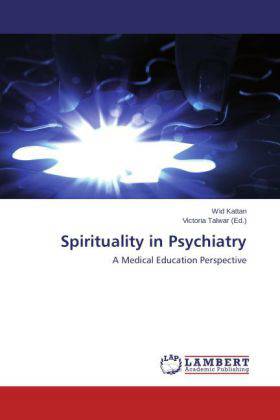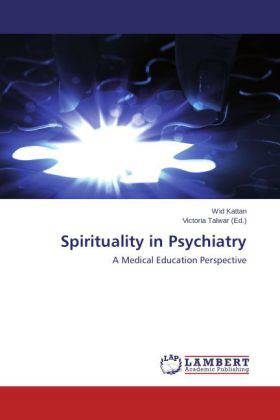
Bedankt voor het vertrouwen het afgelopen jaar! Om jou te bedanken bieden we GRATIS verzending (in België) aan op alles gedurende de hele maand januari.
- Afhalen na 1 uur in een winkel met voorraad
- In januari gratis thuislevering in België
- Ruim aanbod met 7 miljoen producten
Bedankt voor het vertrouwen het afgelopen jaar! Om jou te bedanken bieden we GRATIS verzending (in België) aan op alles gedurende de hele maand januari.
- Afhalen na 1 uur in een winkel met voorraad
- In januari gratis thuislevering in België
- Ruim aanbod met 7 miljoen producten
Zoeken
Spirituality in Psychiatry
A Medical Education Perspective
Wid Kattan, Victoria Talwar
Paperback | Engels
€ 40,95
+ 81 punten
Omschrijving
The importance of addressing spiritual issues in psychiatry is becoming increasingly recognized. A large body of literature supports a link between religiosity and positive mental health outcomes, and leading authorities in psychiatric diagnosis and training have acknowledged these findings. This is reflected in the presence of the category religious or spiritual problem in the Diagnostic and Statistical Manual of Mental Disorders, and in the inclusion of spirituality in patient assessment guidelines and residency training objectives. Despite this, spirituality is seldom addressed in mental health and many psychiatry residency programs offer little training on the topic. This book reviews the literature on spirituality and psychiatry and contributes a new perspective by exploring psychiatry residents attitudes, experiences, comfort levels and learning needs in this area. This work should be useful to professionals working in mental health, and to educators and program directors interested in developing curricula to address training needs in this field, with the ultimate goal of promoting holistic patient-centered care.
Specificaties
Betrokkenen
- Auteur(s):
- Uitgeverij:
Inhoud
- Aantal bladzijden:
- 92
- Taal:
- Engels
Eigenschappen
- Productcode (EAN):
- 9783659498992
- Verschijningsdatum:
- 11/01/2014
- Uitvoering:
- Paperback
- Afmetingen:
- 150 mm x 220 mm
- Gewicht:
- 145 g

Alleen bij Standaard Boekhandel
+ 81 punten op je klantenkaart van Standaard Boekhandel
Beoordelingen
We publiceren alleen reviews die voldoen aan de voorwaarden voor reviews. Bekijk onze voorwaarden voor reviews.









